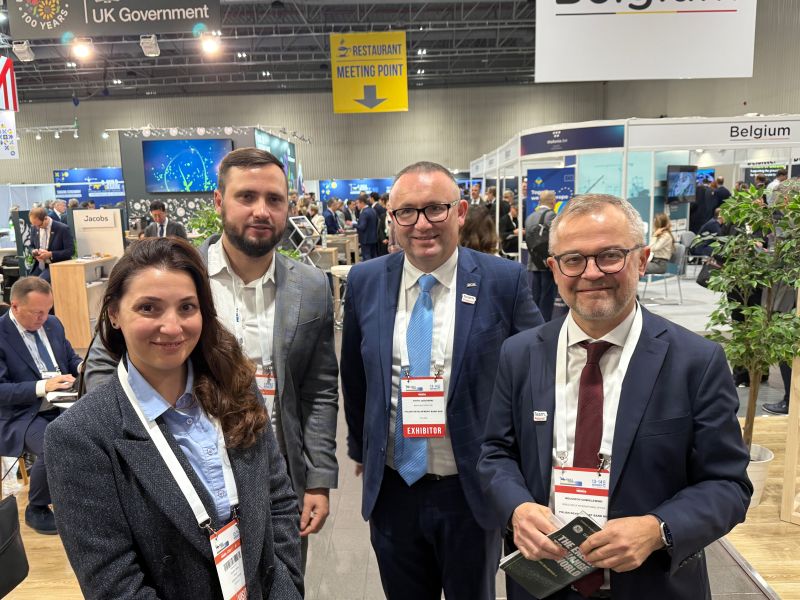Land Acquisition in Ukraine: Legal and Institutional Challenges for EU Investors — Poland as a Case Study
A major point of divergence lies in the transactional methodology. In Ukraine, real estate deals are generally viewed as discrete actions, while in Poland and Western Europe, they are treated as multi-stage processes.Preliminary agreements with extended timelines and precedent conditions are uncommon in Ukraine but form the backbone of institutional real estate transactions in Poland and other EU countries.
Читати на FacebookIn the context of Ukraine’s post-war reconstruction, attracting foreign investmen, particularly from Poland — into strategic economic sectors such as logistics, energy, and infrastructure is of critical importance. Land transactions constitute a foundational component of most investment projects, as they often determine whether development is feasible and legally secure.
The availability of financial instruments offered by Polish institutions under the Facility Ukraine initiative—notably through Bank Gospodarstwa Krajowego (BGK) and Korporacja Ubezpieczeń Kredytów Eksportowych (KUKE)—has made it possible to finance or insure operations in projects that aim to attract both public and private capital for the rebuilding and modernization of Ukraine.
In February 2025, BGK opened a representative office in Kyiv to support companies participating in reconstruction projects and recently announced preferential loan offerings (at interest rates of 1% to 2%) for Polish investors operating in Ukraine. According to our information, the first disbursements under this scheme are expected in Q2 or Q3 of 2025.
Land Due Diligence
Since 2022, our teams of Ukrainian and Polish lawyers has actively participated in projects involving the acquisition of land plots in Ukraine. Such transactions between foreign buyers and Ukrainian sellers are complex and require deep understanding of both Ukrainian and European legal frameworks.
For our international and domestic clients, we recommend to conduct comprehensive legal due diligence of land plots, typically covering the following stages:
1. Analysis of ownership documents, including title deeds, contracts, and transfer history.
2. Verification of encumbrances and legal restrictions, court disputes, third parties claims.
3. Audit of urban planning documentation, assessing the availability and content of the general plan, detailed territory plan (DTP), and zoning plan; verification of functional and designated land use; and evaluation of planning restrictions. Where documentation is absent, construction may be significantly impeded or rendered impossible.
4. Environmental assessment, including proximity to protected areas such as forests, rivers, and nature reserves, mine pollution prevention.
5. Technical audit (engineering and geological surveys).
6. Investment analysis, including examination of land value, taxes, and site preparation costs, structuring of transaction.
Structure the transaction in compliance with statutory formalities and tax obligations
land acquisition in Ukraine is subject to strict procedural formalities, including notarial certification of the pre – sale and sale agreements, state registration of ownership rights.
Ukraine is on its way to harmonization legislative and judicial system to EU and doing visible steps to secure property rights. Importantly, as of April 9, 2025, Law No. 4292-IX (adopted on March 12, 2025) came into force, strengthening legal protections for bona fide purchasers in cases where property is unlawfully alienated from state or municipal ownership. This legislative update significantly reduces risks for investors acquiring land that exited public ownership more than ten years ago.
Key Differences in Institutional Real Estate Transaction Models
A major point of divergence lies in the transactional methodology. In Ukraine, real estate deals are generally viewed as discrete actions, while in Poland and Western Europe, they are treated as multi-stage processes.
Preliminary agreements with extended timelines and precedent conditions are uncommon in Ukraine but form the backbone of institutional real estate transactions in Poland and other EU countries. These agreements function as essential risk mitigation instruments, allowing investors to:
• Secure equity and debt financing;
• Manage regulatory and development risks;
• Establish income flows through leasing commitments;
• Plan exit strategies post-construction.
By contrast, immediate acquisition without conditions is still the norm in Ukraine, although this approach is generally rejected by institutional investors unless they operate on speculative or opportunistic models. Even then, the speculative nature of such deals usually results in lower valuations.
Poland’s prevailing model involves securing a land plot via a preliminary agreement, thereby mitigating risks and enabling project planning and exit options. EU-based investors entering the Ukrainian market should be aware that Ukrainian sellers may resist such frameworks and insist on immediate closing (at best, granting one-two months for due diligence). On the other hand, Ukrainian sellers must adapt to institutional deal structures to attract larger-scale international investments.
Challenges in Applying Western Transaction Models in Ukraine
Polish investors may encounter structural challenges when replicating familiar deal structures in Ukraine. Awareness of these differences is vital. Common examples include:
a. Lack of enforceability of specific performance in court. Unlike in Poland, Ukrainian law does not generally allow buyers to compel a seller to transfer ownership based on a preliminary agreement. Remedies are typically limited to damages.
b. Changes to the subject matter of the agreement.
Concerns may arise that land re-parceling or re-zoning (e.g., agricultural to industrial) transforms the subject of the agreement. While this may prompt hesitation, legal arguments support the view that such changes do not alter the object of the contract if the land remains identifiable.
c. Inability to register buyer's future rights. Ukrainian law does not permit registration of a buyer’s future ownership rights based on a preliminary agreement, unlike Polish law, which allows such entries and thus protects against third-party sales. This limitation increases transactional risk. However, alternative legal mechanisms can be used to safeguard the buyer’s position and mitigate unauthorized sales.
In conclusion, while Ukraine offers promising opportunities for foreign investors, particularly in land-based development projects, understanding and addressing legal and structural differences is key to successful project execution. Legal reforms and harmonization with European practices will play a crucial role in scaling foreign direct investment in the years ahead.
Сo-authors:
Shtohryn Olena Founding and Managing partner of Dictio, attorney at law and mediator
Andrzej Chełchowski, Ph.D. Partner Miller Canfield Poland, attorney at law











